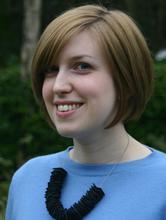 |
Eighteenth and nineteenth century French and German literature; the French Revolution.
|
 |
Global trade and material culture in the early modern world; economic and social history in 18th and early 19th century Britain and Europe; intellectual history.
|
 |
Domestic medical technologies; medicine and immigration in the 20th century; post-war medical research and healthcare delivery patterns in the UK and USA.
|
 |
Early modern European history, especially violence; the Italian states between 1350 and 1600, especially Tuscany.
|
 |
Dr Renske Doorenspleet
Department of Politics and International Studies
Democratic transitions and consolidation; political institutions; party systems in Africa; quantitative and qualitative methodology.
|
 |
Colonial and 19th century Spanish American history.
|
 |
Dr Joanna Garde-Hansen's research and teaching focus upon two strands: media, memory, archives and heritage; and media, gender, emotion and ageing. She has published on (digital) media and memory, and her recent public talks have ranged from Madonna and popular culture to flood memories in Gloucestershire, digital storytelling and the work of the Dennis Potter Heritage Project.
|
 |
Modern European History, especially Germany and France in the 20th century; Comparative, Transnational and Global History; Cultural History of the Political, Micro-History, History of Emotions; Political and Social Movements, Revolts and Revolutions.
|
 |
The history of the Holocaust, Nazi Germany, and modern Central and Eastern Europe; the history of genocide; the history of gender; nationalities; history of everyday life in general.
|
| |
|
 |
The political culture of early modern Britain c.1550 - c.1850, with particular interests in the integration of political and social history, the nature of public discourse, the role of print, and the interaction of politics, literature and ideas.
|
| |
European Public Law, Free Movement of Persons and European Union Citizenship, the Area of Freedom, Security and Justice, Migration Law and Politics, Citizenship, Multiculturalism and Integration, Democracy and Legitimacy in the EU, Law and Global Governance, Political Theory and Constructivism, and, fairly recently, Equality Law.
|
 |
Social and cultural history of preindustrial Europe (esp. the German lands); parish communities; public houses.
|
 |
All aspects of European thought and learning from around 1250 to around 1750; the classical tradition (Aristotelianism and ancient thought more generally) in Renaissance Europe; interactions of Greek, Latin, and the vernacular; Renaissance intellectual history, especially ethics, politics, and science and their configuration in humanism and scholasticism; institutions of culture and learning (particularly universities), with special focus on Bologna and Italy; libraries and history of the book (particularly the library of Ulisse Aldrovandi).
|
 |
19th and 20th century Irish history; women's history.
|
 |
Professor Christina Lupton
Department of English and Comparative Literary Studies
Eighteenth-century literature in the context of media history; theories of the novel; it-narratives and material cultural studies.
|
 |
The comparative history of the First World War and especially on the experience of the French, British, and – to a lesser extent – Belgian populations, wartime mobilization, the experience of refugees, and pictorial humour.
|
 |
Russian Revolution; Russian intelligentsia 1900-1930; Communism and Cultural Revolution.
|
 |
Modern Spanish literature and culture, with interests in Portuguese and Latin American narrative, and prose and drama of the Spanish Golden-Age.
|
 |
Global history, 1400-1800 - history of design and material culture, history of fashion and textiles, small scale manufacturing in Europe.
|
 |
Social, religious, cultural and political history of 16th century France, especially its religious wars; peacemaking and violence; religious minorities and their networks; urban histories.
|
 |
European Union law, employment law, sociology of law, social theory and comparative law; governance of employment and social policies in the European Union.
|
 |
Modern British history, particularly feminism and domestic workers.
|
 |
Medicine and science in early modern Germany (1500-1800); enlightenment science and medicine, strategies of biopower (1800-today); visual culture and medicine (1500-today); the history of epistemology.
|
 |
19th and 20th century British history; history of social policy; psychology and eugenics.
|
 |
Old Regime, Enlightenment and Revolutionary France, with emphases on democratization, human rights, liberalism and economic justice.
|
 |
My research and teaching areas are centred on public finance law and policy in their widest possible contexts.
|





























